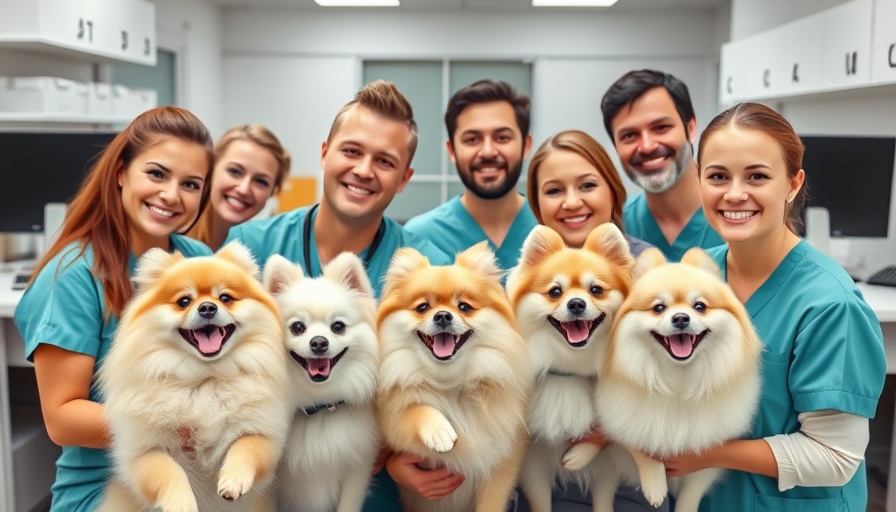
Maximizing the Potential of Veterinary Technicians
In the fast-evolving world of veterinary medicine, clinic owners and managers face the pressing need to optimize operations while delivering quality care. Veterinary technicians are essential members of this ecosystem, yet their full potential often remains untapped. By leveraging the skills of these trained professionals, clinics can enhance profitability, improve client satisfaction, and streamline workflows.
The Unique Skill Set of Veterinary Technicians
Veterinary technicians bring a diverse set of skills to the table, from conducting diagnostic tests to assisting in surgeries. Their training equips them to handle a variety of tasks that can reduce the workload on veterinarians and allow for a more efficient practice. Understanding what your techs can do is the first step to better utilizing their talents. For instance, techs can handle routine lab work, administer anesthesia, and even manage client communications — all critical components that can free up vets for more complex cases.
Case Studies: Success Stories from the Field
Several veterinary practices have reaped the rewards of optimizing their tech teams by creating structured roles for technicians. A notable example is a clinic in Upstate New York that integrated tech-led appointments for wellness checks. By delegating routine follow-ups to trained techs, they were able to increase efficiency, allowing veterinarians to focus their time on surgeries and urgent care. As a result, the clinic saw a 15% increase in client satisfaction and a significant reduction in wait times.
Future Trends: Where Veterinary Practices Are Headed
As telemedicine and digital tools become more ingrained in veterinary practices, the role of veterinary technicians is also expected to evolve. Training techs to assist with online consultations opens a new frontier, allowing them to collect vital patient information or carry out virtual follow-ups. This shift not only increases revenue channels but also enhances the client experience by providing timely and convenient care options.
Common Misconceptions About Veterinary Technicians
Although the importance of veterinary technicians is widely recognized, certain misconceptions persist. Many clinic owners mistakenly believe that techs can only serve a support role. In reality, they can significantly influence practice efficiency and patient outcomes when given the opportunity to take on more responsibility. Additionally, some practices underestimate the impact of effective communication by techs with clients. Empowering techs to handle client education regarding preventive care can lead to more informed pet owners, ultimately enhancing the practice’s reputation and fostering loyalty.
Practical Insights for Clinic Owners
To maximize the potential of your vet techs, consider implementing the following strategies:
- Cross-Training Opportunities: Invest in ongoing education and training that enables technicians to deepen their expertise, such as specialized courses in surgery or anesthesia.
- Defined Roles and Responsibilities: Clearly outline the tasks and departments where techs can excel, ensuring their skills match clinic needs.
- Encouragement of Feedback: Create an environment where techs can share insights about their roles and suggest improvements.
These practices not only empower your team but also promote a culture of collaboration, leading to improved patient care.
Empowering Your Team and Improving Client Relations
By tapping into the full potential of veterinary technicians, clinic owners can enjoy a holistic improvement in operations and client relations. When techs feel valued and engaged, their higher job satisfaction translates into better care for pets and an overall enhanced experience for pet owners. As the veterinary landscape continues to evolve, embracing the roles of your technicians will be crucial in ensuring your practice’s success in the coming years.
 Add Row
Add Row  Add
Add 

 Add Row
Add Row  Add Element
Add Element 




Write A Comment